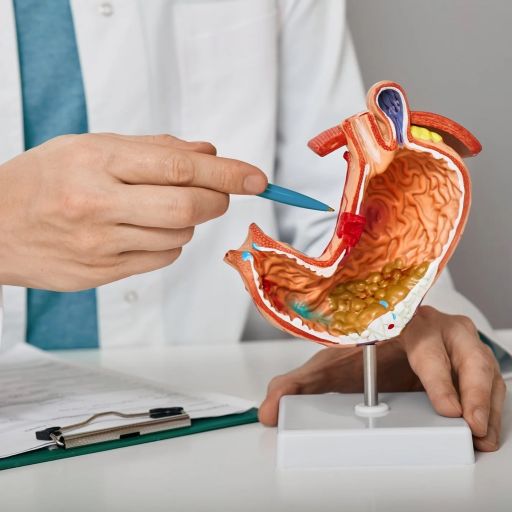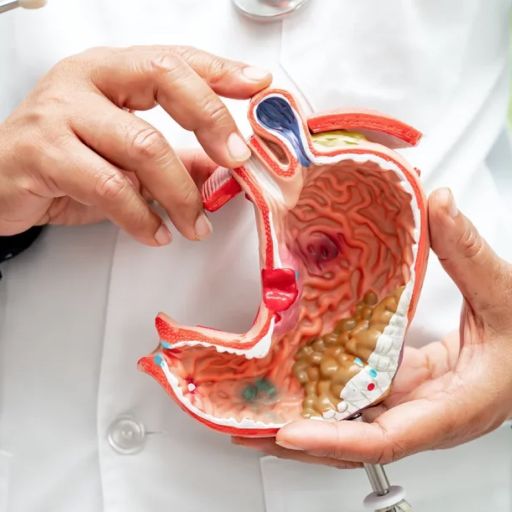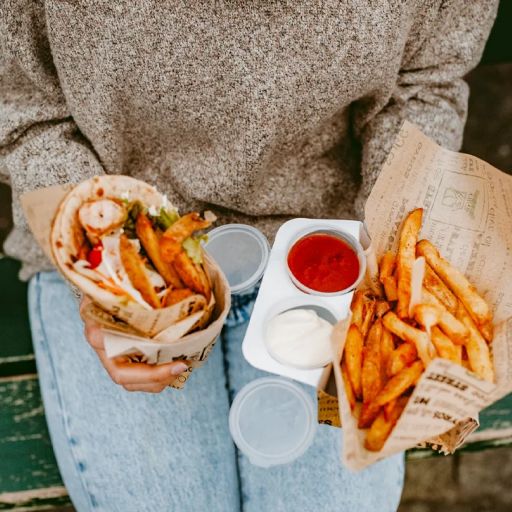What do you Know About Credit Scores!
Unveiling the Truth: Debunking Home Insurance Myths.
What to do When Your Auto Insurance Claim is Denied?
Weighing the Pros and Cons: Using a Personal Loan to Tackle Credit Card Debt.
Insuring Your Peace of Mind: An Overview of Common Types of Insurance.
What You Need to Know About Secured Credit Card Deposits!




“Stomach cancer"—the name itself is enough to fill people’s hearts with fear. Stomach cancer makes up about 1.5% of new cancer cases in the United States every year.
The American Cancer Society (ACS) expects around 26890 new cases in 2024. This may result in the deaths of more than 10,000 people in the year alone.
According to the ACS, stomach cancer cases have been falling by about 1.5% yearly over the last decade. This decline may be due to better prevention and improvements in food safety and healthcare.
Stomach cancer is the sixth most common cancer worldwide, but cases have dropped in recent decades. You can't fully prevent it, but there are ways to reduce your risk. Here's how you can protect yourself.
Stomach cancer risk factors
Before we look at any diet changes, we must first identify the factors that contribute to stomach cancer risk. Some of these are beyond your control, while others can be managed through lifestyle choices. Here are the common risk factors for stomach cancer.
●Helicobacter pylori infection
This bacteria is capable of causing chronic sepsis of the stomach lining. This is a key stomach cancer risk factor. The infection can result in ulcers after some time, which increases the chances of cancer.
●Age
Stomach cancer is more common in older adults, especially those over 60. As people age, their risk of getting stomach cancer increases.
●Gender
Stomach cancer is a neoplasm, which is more prevalent in men than in women.
●Family history
Having a family history of stomach cancer increases your risk of getting the disease.
●Smoking
Smoking raises the risk of stomach cancer, particularly in the upper part of the stomach near the esophagus.
●Diet
An unhealthy diet, which is characterized by the consumption of processed meats and salt and the lack of fruits and vegetables, can lead to increased chances of stomach cancer.
While factors like age and family history can't be changed, diet and lifestyle choices offer a good chance to lower your risk.

Increase your consumption of fruits and vegetables
While many experts provide recommendations on what to eat to prevent stomach cancer, there’s nothing more useful than increasing the intake of fruits and vegetables.
Fresh fruits and vegetables provide important vitamins, minerals, and antioxidants, which can curb the development of cancer cells in the body.
Fruits like citrus fruits, berries, and apples are high in antioxidants and are packed with antioxidants that can neutralize harmful free radicals in the body. Vegetables such as broccoli, spinach, and carrots are very fibrous and contain lots of vitamins and phytochemicals.
Eating more of this can encourage good digestion and even minimize the chances of contracting cancer.
The fiber in these plant-based goodies keeps your digestive system in tip-top shape. It gets things moving and kicks potential carcinogens out of your system like an unwanted guest.
Limit processed and salted food
Processed and preserved foods such as bacon, sausages, hot dogs, and salted fish contain nitrates and nitrites that have been linked to an increased risk of stomach cancer. These substances can convert into harmful compounds called nitrosamines during digestion, which can damage the stomach lining and lead to cancerous changes.
Limiting your intake of these foods and opting for fresh, whole foods instead is a smart choice for lowering your stomach cancer risk. When choosing meats, opt for lean cuts of unprocessed meats, and try to avoid smoked or cured meats as much as possible.
Additionally, consuming foods that are overly salted, such as pickles and certain preserved vegetables, can increase stomach cancer risk. Salt can damage the stomach lining, making it more vulnerable to cancer-causing agents.

Choose whole grains over refined grains
Some examples of whole grains are brown rice, quinoa, oats, and whole wheat bread. They contain fiber and other healthy nutrients too. High-fiber diets have been proven to decrease the risk of some cancers, including stomach cancer.
On the other hand, refined grains like white bread, white rice, and pastries contain no such nutrition. This is due to the processes they have undergone, which strip them off fiber and other nutritious content.
Switching from refined to whole grains prevents numerous disorders. It encourages better digestion, reduces inflammation, and decreases the risk of stomach cancer by many folds.
Incorporate probiotics and fermented foods.
Probiotics are your gut's best friends. These good bacteria keep your gut microbiome in check. A balanced microbiome can fend off harmful bacteria like Helicobacter pylori, which raises stomach cancer risks.
Want to boost your gut health? Load up on probiotic-rich food items like yogurt, kefir, sauerkraut, kimchi, and miso. These fermented delights bring live cultures that strengthen your gut and stomach lining.
Adding more of these tasty, gut-friendly foods to your diet could help you keep harmful bacteria at bay and reduce your stomach cancer risk.

Limit alcohol consumption
Alcohol may add some fun, but it can also raise your cancer risk, especially in the stomach. It irritates the lining of your stomach and esophagus, leaving them vulnerable. Combine heavy drinking with smoking, and the risk skyrockets.
To stay on the safe side, limit your alcohol intake or skip it altogether. If you drink, stick to moderation: one drink per day for women and two for men. Your stomach will thank you!
Incorporate cancer-fighting spices.
Spice up your life—and your health! Certain spices pack a punch with anti-inflammatory and antioxidant powers that may help fight cancer. Take turmeric, for instance. It’s loaded with curcumin, a compound that’s been studied for slowing down cancer cell growth.
But Turmeric's not the only hero. Garlic, ginger, and cayenne pepper bring their own cancer-fighting magic to the table. Toss these spices into your dishes for extra flavor and a little added protection against stomach cancer. Your taste buds—and stomach—will thank you!
Reducing your risk of stomach cancer doesn’t have to be a bland journey. By making a few smart choices, like loading up on fresh fruits and veggies, ditching processed foods, and adding whole grains to your plate, you’re already giving yourself a fighting chance.

A complete guide to outdoor hiking in the cool autumn weather for the elderly

Scaling New Heights: The Unstoppable Senior Rock Climbers of America!

Greenery under the sunset - Gardening is a happy time for the elderly

The appeal of the outdoors for seniors in the fall and winter in the USA!